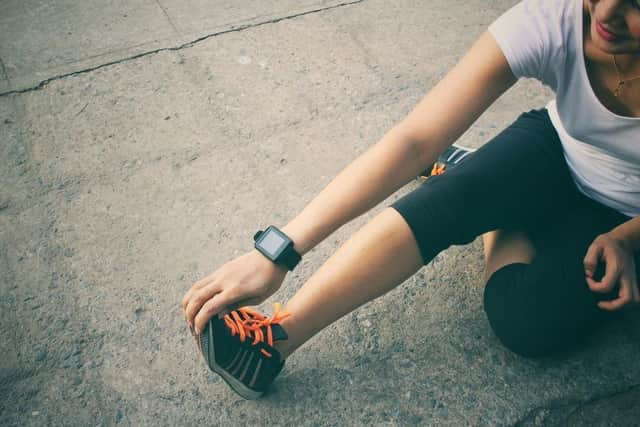When to see a sports specialist for knee injuries – by consultant orthopaedic surgeon at Nuffield Health
and live on Freeview channel 276
Knee injuries are very common. In fact, the knee is one of the most commonly injured joints in sports. Significant forces go through the joint with load bearing and twisting making it susceptible to injury.
Knee pain itself can be very debilitating, making sporting activities such as running, jumping and bending quite painful and sometimes even walking and weight bearing hard to do.
What are the most common sporting injuries you find?


Sprains, tendinitis, ligament injuries and cartilage injuries. Although most can be treated with conservative management (e.g. activity modification, structured physiotherapy regime) some injuries may require surgical intervention such as keyhole surgery or ligament repair/reconstruction.
What you can do to aid recovery at home before needing to see a specialist?
Most simple knee injuries can be managed at home. The RICE protocol is often helpful in treating these:
- Rest – avoid strenuous or painful activities. Avoid standing for long periods of time.
- Ice – use an ice park or frozen peas for about 20 mins every three to four hours.
- Compression – potentially wrap a bandage around your knee but not tight enough to cause pain.
- Elevation – keeping the knee propped up on some pillows may help.


At the same time pain killers, such as paracetamol or ibuprofen gel, can help. NSAIDS (non-steroidal anti-inflammatories) such as ibuprofen tablets can also help but these do have side-effects and are not safe for everyone – so please check before taking them.
When is it time to seek medical advice?
There are a number of reasons to see a specialist. Reasons to seek immediate medical advice are if the knee is badly swollen or out of shape, if you have associated fevers or a high temperature or if you cannot move it or put any weight on it. Otherwise if the knee pain does not settle with time, it’s time to see a specialist.
If the knee injury was particularly forceful, if a ‘pop’ was heard at the time, if there is jamming of the knee or if you can hear significant clicking – you should seek specialist medical advice.
A feeling of weakness or instability where you have the sensation the knee will give way is also a concern, as is an inability to perform everyday tasks due to knee pain or stiffness.
A specialist will talk to you about your injury and symptoms. They will be able to examine your knee to determine whether you have injured any particular structures.
Would I need diagnostic testing?
Specialists will also have access to diagnostic investigations such as x-rays and MRI’s.
X-rays will show bone injuries and evidence of chronic problems such as arthritis. An MRI scan is a very detailed scan which can look at the cartilage, ligaments, joint surfaces and bones in detail. This will help to diagnose your knee problem and provide a structured treatment plan to get you back to fitness.
What kind of injury am I prone to if I am an athlete?
Athletes are prone to knee ligament injuries. These can be in the form of ligament ruptures.
The ACL (anterior cruciate ligament) helps to stabilise the knee. An injury to this ligament often results in the sensation of the knee giving way. This injury often requires surgery. A tear of the ‘shock absorber’ or meniscus is also common and may require keyhole surgery. Other common injuries for athletes and runners include sprains and tendinitis, which are usually treated with a structured physiotherapy
All treatment is aimed at getting you back to fitness so that your knee does not hold you back and allows you to enjoy the activities you want to.
Mr Ghosh specialises in sports and ligament injuries and is involved in the treatment of professional sports teams and athletes.
If you experience any of the symptoms above and would like to book an appointment with Mr Arijit Ghosh, please click here or call 0300 131 1416 to speak to our inhouse team.